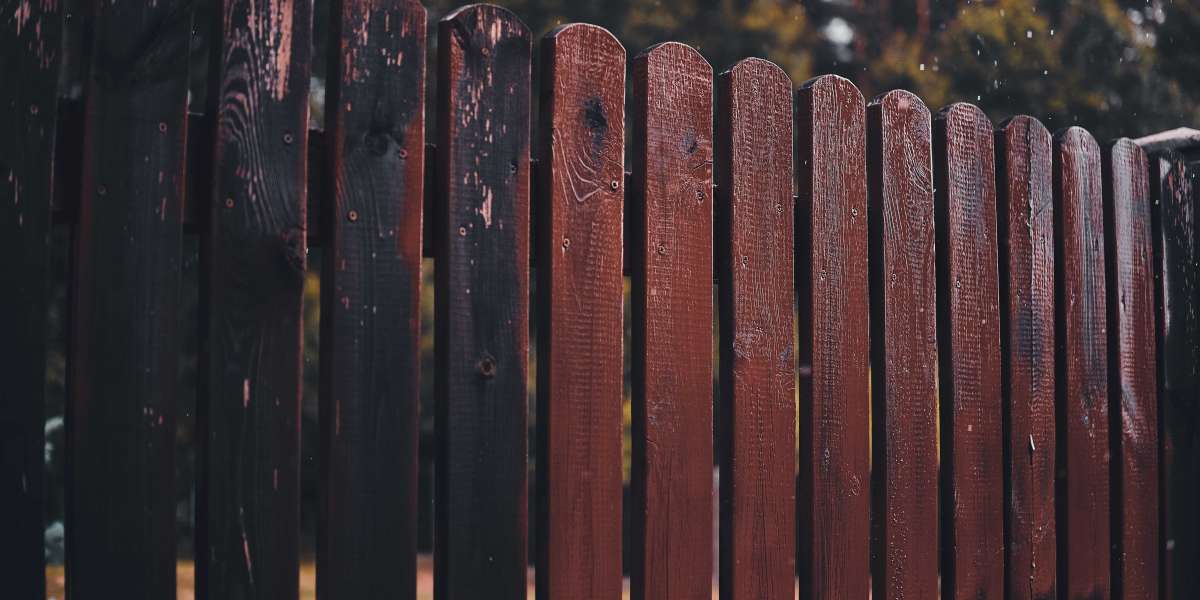When homeowners begin planning a new fence, the first major decision usually revolves around the type of wood. While there are several popular options—pressure-treated pine, spruce, fir, and redwood—cedar is consistently regarded as the gold standard. Its warm color, natural scent, and long-lasting durability make it a favourite for both residential and commercial properties.
But what exactly sets cedar apart from the rest? Why do many top contractors who specialize in fence installation Vancouver recommend it over other materials? And is the investment truly worth it in the long run?
In this in-depth guide, we’ll explore how cedar compares to other wood types in terms of durability, longevity, appearance, maintenance, cost, and environmental impact. Whether you're planning a backyard upgrade, a privacy fence, or you're consulting with wood deck builders Vancouver, understanding your material choices is the key to making a smart, lasting decision.
1. Natural Durability: Cedar’s Secret Weapon
Cedar is one of the few woods that is naturally resistant to moisture and decay. Unlike pine or fir—which must be pressure-treated to withstand the elements—cedar contains its own built-in protectant: thujaplicins, a group of natural oils that act as preservatives.
Why This Matters:
- Resists Rot – Cedar’s oils help protect the wood from fungus, moisture, and insects.
- Less Warping – Because cedar absorbs moisture more evenly, it tends to resist splitting and cracking.
- No Chemical Treatment Needed – This makes cedar safer around children, pets, gardens, and water sources.
Most other fencing woods depend on chemical treatments for protection. Pressure-treated materials can perform well initially, but over time, treatment chemicals may leach out, and the wood becomes more vulnerable.
In a climate like Vancouver's—where rain, humidity, and seasonal temperature swings are part of everyday life—natural resistance is a huge advantage. It’s one of the major reasons local contractors specializing in fence installation Vancouver consistently recommend cedar as the best long-term choice.
2. Longevity: Cedar Outlasts the Competition
When maintained properly, cedar fences can last 20 to 30 years, sometimes longer. In contrast:
- Spruce typically lasts 7–12 years.
- Pressure-treated pine lasts around 12–15 years.
- Fir ranges from 10–15 years.
- Redwood is comparable to cedar, but usually comes at a much higher cost in Canada.
Even untreated cedar posts tend to last longer than many treated options. And when cedar boards age, they don’t deteriorate all at once. Instead, they slowly weather, becoming more rugged without losing structural integrity.
For homeowners who want a fence that won’t need replacement every decade, cedar offers one of the best value-to-longevity ratios.
3. Aesthetic Appeal: Cedar Ages Gracefully
One of cedar’s greatest advantages is how beautiful it looks—both when new and as it ages.
Fresh Cedar Appearance
- Warm reddish tones
- Tight, uniform grain
- Smooth, rich texture
- Minimal knots (especially with Western Red Cedar, a common choice in Vancouver)
Weathered Cedar Appearance
If you prefer a natural look and choose not to stain your cedar, it gradually transforms into a soft, elegant, silver-grey patina. Many homeowners love this coastal aesthetic, especially in areas like Vancouver where natural design elements blend well with cedar siding, cedar shingles, and wood decks.
Compared to other woods:
- Spruce tends to yellow and crack with age.
- Pine may show blotchy discoloration.
- Fir fades unevenly and can look dull.
Your fence is one of the most visible parts of your property. Cedar helps elevate curb appeal and adds warmth that lasts.
4. Stability Strength: Cedar Stays Straight
A big frustration with cheaper wood options is how quickly they warp, cup, twist, and split. Moisture inconsistencies, knots, and grain irregularities all contribute to unstable boards.
Cedar, on the other hand, is one of the most dimensionally stable woods available. Its fibers expand and contract gently with temperature and humidity, which means:
- Fewer warped boards
- Fewer popped nails
- Fewer visible gaps
- A more uniform, professional appearance long-term
When contractors install a cedar fence, they're working with a material that’s easy to cut, shape, and align—resulting in a cleaner finished product.
It’s not surprising that many wood deck builders Vancouver also prefer cedar decking for the same reasons: consistency, stability, and a reliable installation process.
5. Insect Resistance: Cedar Naturally Keeps Pests Away
Cedar contains natural oils that act as a deterrent to insects including:
- Termites
- Ants
- Carpenter bees
- Beetles
While no wood is completely immune to pests, cedar outperforms nearly every other fencing material on the market without requiring chemical additives.
Pressure-treated woods repel insects initially, but treatments wear off over time. Cedar, however, maintains its repellent qualities through its entire life cycle.
6. Maintenance Requirements: Cedar is Low-Maintenance by Nature
No wood fence is completely maintenance-free, but cedar demands less work than most alternatives.
Basic Cedar Maintenance May Include:
- Occasional cleaning
- Re-staining or sealing every 3–5 years (if you want to preserve color)
- Removing debris to prevent moisture buildup
For homeowners who prefer a natural grey finish, maintenance is even lower. Just let the wood weather naturally, and you’ll still enjoy decades of durability.
Contrast this with other woods:
- Pine often needs sealant more frequently due to softer fibers.
- Spruce cracks and dries out quickly without consistent care.
- Fir requires frequent staining to maintain visual appeal.
If you’re looking for a fencing material that offers beauty without constant upkeep, cedar stands out as a top choice.
7. Environmental Benefits: Cedar is a Green Choice
Cedar is one of the most eco-friendly fencing materials available. Sustainable cedar forests—especially those in British Columbia—follow strict stewardship practices.
Environmental Advantages:
- Completely renewable and biodegradable
- Requires no chemical treatment
- Produces less carbon during processing than pressure-treated lumber
- Long-lasting, which reduces waste
When homeowners work with professionals who offer fence installation near me , they’re often choosing wood sourced from local mills, reducing transportation emissions and supporting sustainable forestry.
8. Cost: Cedar Is an Investment, Not an Expense
Cedar is undeniably more expensive upfront than pine, spruce, or fir. But cost should always be viewed in terms of total lifespan and maintenance demands.
Cedar Cost Advantages Over Time:
- Lower repair and replacement costs
- Longer lifespan (2–3x longer than spruce or pine)
- Higher property value and curb appeal
- Better structural stability and fewer board failures
In many cases, homeowners who choose cedar actually spend less over the lifetime of their fence compared to those who choose lower-cost materials.
9. Cedar vs. Pressure-Treated Wood: The Most Common Comparison
Pressure-treated lumber is often the first alternative people consider because it’s cheaper and widely available. However, the differences between the two materials are significant.
Cedar:
- Naturally rot-resistant
- No chemicals
- Better aesthetics
- Lasts longer in coastal climates
- Low-maintenance
Pressure-Treated:
- Cheaper initially
- Relies on chemical preservatives
- More prone to warping
- Less visually appealing
- Requires frequent sealing
- Shorter lifespan
For homeowners who prioritize long-term value and appearance, cedar almost always comes out on top.
10. Cedar vs. Redwood: A Close Second
Redwood is another premium fencing wood that rivals cedar in many categories—beauty, durability, and natural insect resistance. However:
- Redwood is significantly more expensive in Canada.
- Supply is more limited.
- Environmental concerns around redwood forests make cedar a more sustainable choice.
For Vancouver homeowners, cedar simply provides a better balance of cost, availability, and performance.
11. Cedar in Vancouver’s Climate: A Perfect Match
The Pacific Northwest climate is rough on exterior wood. High rainfall, coastal humidity, salty air, and cool winters can wreak havoc on fences.
This is where cedar truly shines.
Why Cedar Performs So Well in Vancouver:
- Natural rot resistance handles constant moisture.
- Stable grain prevents warping from temperature swings.
- Slow decay rate means fewer repairs.
- Western Red Cedar—native to this region—is specifically adapted for local weather.
Local contractors know this better than anyone. That’s why companies doing fence installation Vancouver typically recommend cedar as the superior choice for both durability and appearance.
12. What Homeowners Love Most About Cedar Fencing
After working with countless clients and contractors, several themes consistently emerge regarding what people love most about cedar:
The Look
Cedar offers a level of richness and warmth that other woods simply can’t replicate.
The Longevity
Homeowners want a low-maintenance fence that lasts, and cedar delivers.
The Scent
Cedar has a naturally pleasant, fresh aroma—not a chemical smell like treated lumber.
The Sustainability
Cedar comes from responsible forests and doesn’t require chemical preservatives.
The Resilience
From pests to humidity, cedar handles environmental challenges with ease.
13. Cedar Pairings: Why Deck Builders Love It Too
The benefits of cedar aren’t limited to fencing. Many wood deck builders Vancouver also turn to cedar for decking, pergolas, privacy screens, and outdoor structures.
Why Builders Love Cedar for Decks:
- Lightweight but strong
- Easy to cut and install
- Ages beautifully
- Stays cool underfoot in summer
- Performs well in wet climates
For homeowners designing a cohesive outdoor living space, pairing a cedar fence with a cedar deck can create a warm, unified look that lasts for decades.
14. Tips for Choosing the Right Cedar Fence
Not all cedar is created equal. When planning a project, consider the following:
Choose Western Red Cedar
It is the most durable and is widely available in Vancouver.
Decide Between Smooth or Rough Cuts
- Smooth offers a sophisticated, finished appearance.
- Rough sawn has a rustic, bold texture.
Pick the Right Stain
- Transparent stain reveals natural grain.
- Semi-transparent adds subtle color.
- Solid stain gives uniform coverage.
Don’t Forget the Hardware
Use high-quality stainless steel or coated fasteners to prevent staining and prolong lifespan.
15. Conclusion: Why Cedar Fencing Truly Is Superior
When comparing cedar to other woods—pine, fir, spruce, pressure-treated lumber, and even redwood—the advantages become crystal clear. Cedar’s natural oils protect it from moisture, insects, and rot. Its beauty is unmatched. Its durability outperforms nearly every alternative. And its long-term value far outweighs the slightly higher initial cost.
For homeowners in Vancouver, where climate plays a major role in the performance of outdoor materials, cedar isn’t just a premium choice—it’s the smart choice.
Whether you’re looking into fence installation Vancouver or working with wood deck builders Vancouver to create a complete outdoor living space, cedar offers reliability, beauty, and peace of mind for years to come.








